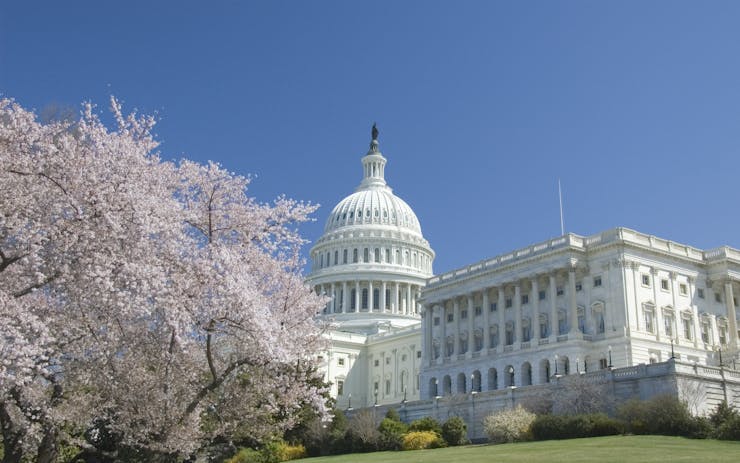Earlier today the governors of Alaska, Colorado, Oregon, and Washington sent a letter to US Attorney General Jeff Sessions and US Treasury Secretary Steve Mnuchin, urging them to uphold the Obama-era policies that have allowed the legal and regulated use of cannabis to proceed in their states.
The governors urged Sessions and Mnuchin to continue following the Cole Memo—the August 2013 Justice Department memorandum that allowed adult-use legalization in Colorado and Washington—and the Treasury Department’s FinCEN (Financial Crimes Enforcement Network) guidance that allowed financial institutions to work with state-legal companies.
“Overhauling the Cole Memo is sure to produce unintended and harmful consequences,” they wrote. “Changes that hurt the regulated market would divert existing marijuana product into the black market and increase dangerous activity in both our states and our neighboring states. Likewise, without the FinCEN guidance, financial institutions will be less willing to provide services to marijuana-related businesses. This would force industry participants to be even more cash reliant, posing safety risks both to the public and to state regulators conducting enforcement activity.”
“Twenty-eight states, representing more than 60 percent of Americans, have authorized some form of marijuana-related conduct. As we face the reality of these legalizations, we stand eager to work with our federal partners to address implementation and enforcement concerns cooperatively. The Cole Memorandum and the associated FinCEN guidance are critical to the success of any collaboration.”
The letter was signed by Alaska Gov. Bill Walker, Colorado Gov. John Hickenlooper, Oregon Gov. Kate Brown, and Washington Gov. Jay Inslee. All four requested that Sessions and Mnuchin “engage with us before embarking on any changes to regulatory and enforcement systems.”
A full copy of the letter can be found here.
'Overhauling the Cole Memo is sure to produce unintended and harmful consequences.'
The letter is the first formal indication that the leaders of all four states with adult-use cannabis legalization want the Trump administration to allow the regulated industry to continue without federal interference.
The National Cannabis Industry Association welcomed approach. “There is no denying that regulated cannabis businesses are preferable to underground markets dominated by gangs and cartels,” said National Cannabis Industry Association executive director Aaron Smith. “The regulated markets are creating jobs, generating tax revenue, and taking marijuana sales off the streets. The Trump Administration should be working with the states to ensure the regulated markets are functioning properly and safely, not working against the states to shut them down.”
Kristi Kelly, executive director of the Marijuana Industry Group, the leading trade association for Colorado’s licensed businesses, added: “A tightly constructed regulatory system has proven effective in identifying, controlling, and reducing the threats of criminal enterprises, gangs and cartels. Colorado’s cannabis program is heavily regulated, heavily taxed, and heavily enforced by state and local governments. Further, the existence of a legal market diminishes the impact of illegal cartels by allowing consumers to transition into taxed and regulated purchases.”






